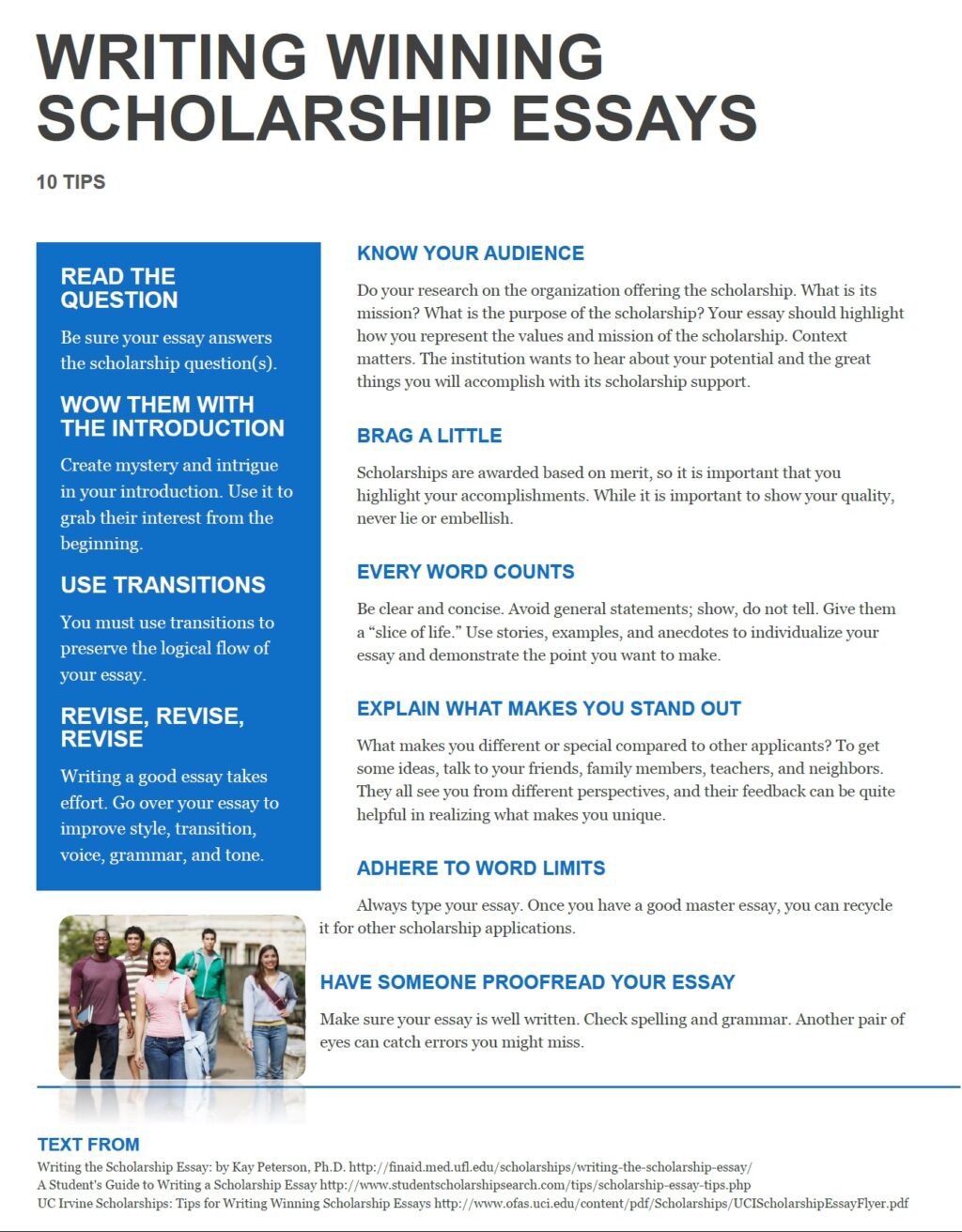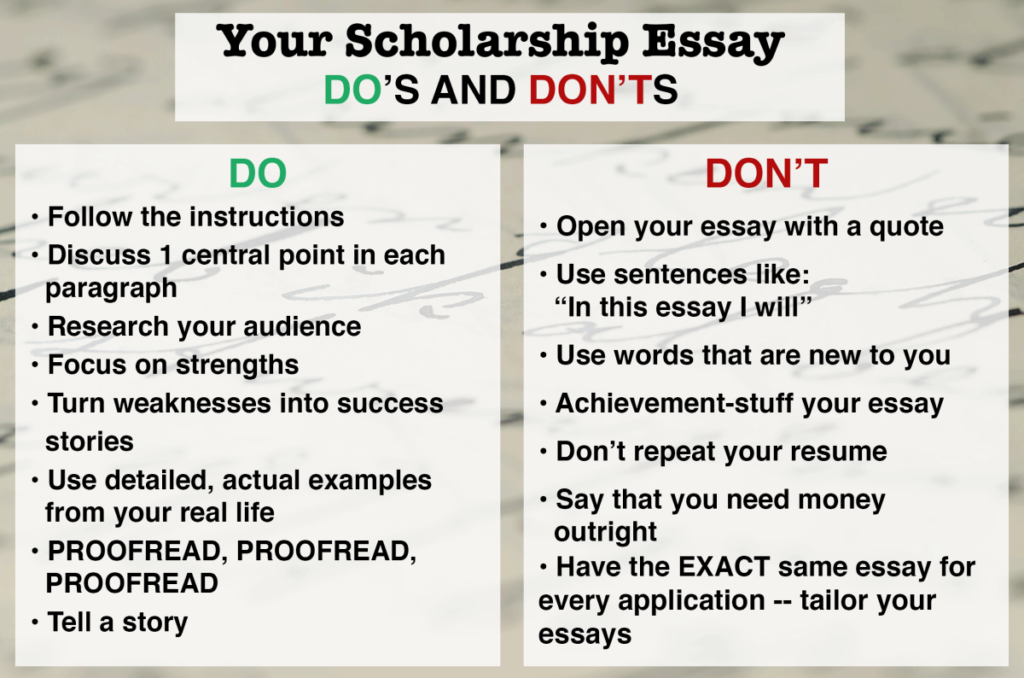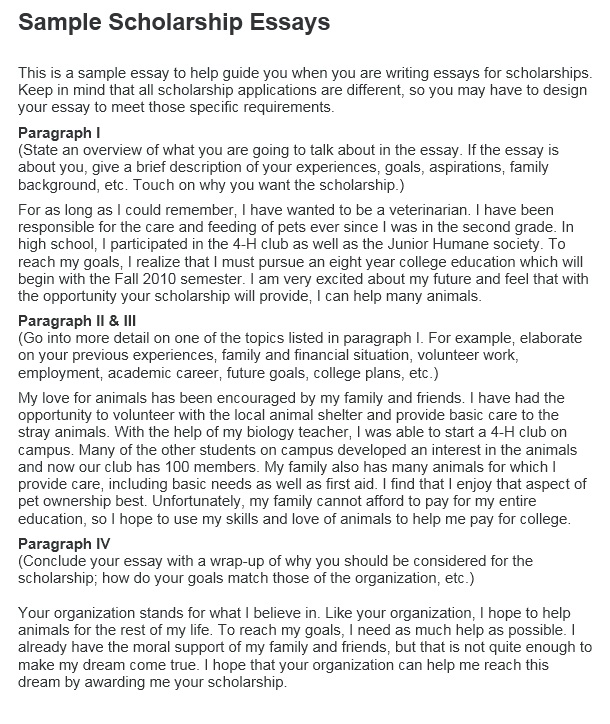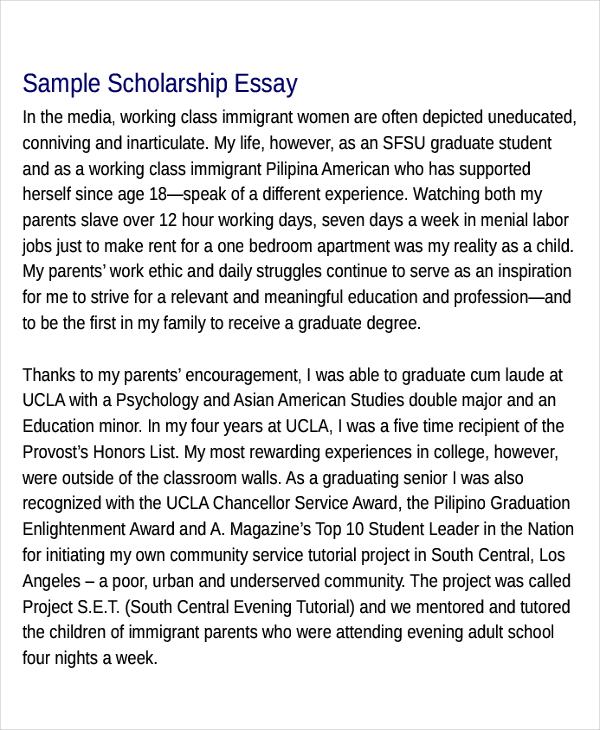
Are you eager to learn the secrets of crafting a winning scholarship essay that will set you apart from the competition? Do you want to discover the tips and techniques that will help you showcase your unique qualities and convince scholarship committees to choose you? Look no further! In this article, you will find valuable insights and practical advice on how to write a captivating scholarship essay that will increase your chances of securing the financial support you need for your educational journey.
Understanding Scholarship Essays
What is a scholarship essay?
A scholarship essay is a written piece that is typically required by scholarship committees as part of the application process. It is an opportunity for you to showcase your skills, experiences, and aspirations to the committee, with the aim of convincing them that you are the best candidate for the scholarship.
Why are scholarship essays important?
Scholarship essays are important because they provide you with the chance to stand out among other applicants. They allow you to share your unique story, highlight your achievements, and demonstrate your potential to make a difference in your field of study. Scholarship essays give scholarship committees valuable insights into who you are as a person and how you align with their mission and values.
What are scholarship committees looking for?
Scholarship committees are looking for several key qualities and characteristics in scholarship essays. They want to see your passion and commitment to your chosen field of study, as well as evidence of your achievements and potential. They also want to understand how receiving the scholarship will help you reach your goals and make a positive impact. Lastly, scholarship committees are looking for authentic and genuine essays that stand out from the rest.
Preparation and Research
Know the scholarship requirements
Before starting your essay, it is crucial to carefully read and understand the scholarship requirements. Familiarize yourself with the eligibility criteria, word count, deadline, and any specific guidelines or prompts provided. Understanding the requirements will help you tailor your essay to meet the scholarship committee’s expectations.
Research the scholarship provider
Take some time to research the organization or institution offering the scholarship. Visit their website, read about their mission and values, and learn about their previous scholarship recipients or projects they have supported. This research will allow you to understand their priorities and tailor your essay to align with their goals.
Understand the essay prompt
The essay prompt is the question or statement provided by the scholarship committee that you must address in your essay. Take the time to carefully analyze and understand the prompt. Identify the key themes or ideas the committee wants you to explore, and consider how you can best showcase your skills and experiences within the scope of the prompt.
Gather relevant information
To write a compelling scholarship essay, you need to gather relevant information about yourself and your achievements. Review your academic record, extracurricular activities, volunteer work, and any other experiences that have shaped who you are. Identify key accomplishments, challenges overcome, and lessons learned that you can incorporate into your essay to make it impactful and engaging.
Structuring Your Essay
Create an outline
Before diving into writing, create a clear and concise outline for your essay. An outline will serve as a roadmap, helping you organize your thoughts, maintain a logical flow, and ensure you cover all the necessary points. Divide your outline into sections for the introduction, body paragraphs, and conclusion.
Introduction
The introduction is the first impression the scholarship committee will have of your essay, so it’s important to make it engaging and compelling. Grab the reader’s attention with a captivating hook, such as an intriguing fact, a personal anecdote, or a thought-provoking question. Clearly state the purpose of your essay, which is to demonstrate why you are the ideal candidate for the scholarship. Provide some background information to give the reader context and set the stage for the rest of your essay.
Body paragraphs
The body paragraphs of your essay should each focus on a main idea or aspect of your candidacy. Start each paragraph with a topic sentence that clearly states the main point you are trying to convey. Use clear and concise language to explain your ideas, providing specific examples and evidence to support them. Avoid repetition and tangents to ensure that your essay remains focused and cohesive.
Conclusion
The conclusion is your opportunity to leave a lasting impression on the scholarship committee. Summarize the main points you have discussed in your essay, reminding the reader of your achievements, aspirations, and commitment to your field of study. Reiterate the importance of your topic and why it matters to you. Leave the reader with a memorable closing statement that reinforces your suitability for the scholarship and your dedication to making a positive impact.
Writing Engaging Introductions
Grab the reader’s attention
In order to stand out from other applicants, it is crucial to grab the reader’s attention right from the start. Use a captivating hook to pique their curiosity and make them want to continue reading your essay. Consider starting with a compelling quote, an intriguing fact, or a personal anecdote that relates to your chosen field or the scholarship you are applying for.
Clearly state your purpose
Your introduction should clearly state the purpose of your essay, which is to convince the scholarship committee that you deserve the scholarship. Be explicit about why you are the ideal candidate and what makes you unique. Clearly articulate your goals, achievements, and aspirations, making it clear why you are deserving of their support.
Provide background information
While it is important to grab the reader’s attention, providing some background information is also essential. This will give the reader context and help them understand the motivation behind your application. Explain why you are interested in the field of study or career path you have chosen, and highlight any experiences or challenges that have shaped your journey so far.

Developing Strong Body Paragraphs
Focus on a main idea per paragraph
Each body paragraph should focus on a single main idea or aspect of your candidacy. This allows you to delve deeper into specific topics and present a clear and coherent argument. Start each paragraph with a topic sentence that clearly states the main point you will be discussing, and use the rest of the paragraph to provide evidence and examples to support your argument.
Use clear and concise language
When writing your body paragraphs, it is important to use clear and concise language to convey your ideas effectively. Avoid unnecessary jargon or complex language that could confuse the reader. Instead, strive for simplicity and clarity, ensuring that your message is easily understood and appreciated.
Support your ideas with evidence
To make your essay more compelling, it is important to support your ideas with concrete evidence. This could include specific examples from your experiences, achievements, or academic record. Use data, statistics, or testimonials to bolster your claims and demonstrate the impact of your work. By providing evidence, you make your essay more credible and convincing.
Avoid repetition and tangents
To maintain a logical and coherent flow in your essay, it is important to avoid repetition and tangents. Each body paragraph should contribute to your overall argument and provide new insights or examples. Make sure to review your essay and remove any redundant information or ideas that do not directly support your main points.
Crafting a Memorable Conclusion
Summarize your main points
In your conclusion, it is important to summarize the main points you have discussed throughout your essay. Remind the reader of your achievements, experiences, and goals. This will reinforce the key aspects of your candidacy and leave a strong impression on the scholarship committee.
Reiterate the importance of your topic
The conclusion is a great opportunity to reiterate the importance of your chosen field of study or topic. Highlight the significance of the scholarship and how it will help you make a difference in your field. Show the committee that you are passionate about your area of interest and committed to contributing to its advancement.
Leave the reader with a lasting impression
To make your conclusion memorable, consider leaving the reader with a thought-provoking statement, a call to action, or a powerful anecdote. This will leave a lasting impression and ensure that your essay stands out among the rest. Remember, you want to leave the reader wanting to learn more about you and why you deserve the scholarship.
Creating an Impactful Writing Style
Use specific and vivid language
To make your essay engaging and memorable, it is essential to use specific and vivid language. Instead of using general or generic terms, be more descriptive and provide details that paint a clear picture in the reader’s mind. This will help make your essay more personal and relatable, allowing the scholarship committee to connect with your story on a deeper level.
Show, don’t tell
When describing your experiences or achievements, it is important to show, rather than tell, the reader. Instead of simply stating that you are passionate about a certain cause, provide specific examples of how you have taken action and made a difference in that area. By showing your dedication and commitment through concrete actions, you make your essay more impactful and believable.
Be authentic and genuine
Scholarship committees are looking for genuine and authentic essays that reflect who you truly are. It is important to be yourself and let your unique voice and personality shine through in your writing. Avoid trying to impress the committee with overly formal or complicated language. Instead, be honest, sincere, and true to yourself.
Proofread and revise your essay
Before submitting your essay, it is crucial to proofread and revise it thoroughly. Look for any grammar or spelling errors and correct them. Ensure that your essay flows smoothly and is free from unnecessary repetition or tangents. It can also be helpful to ask a trusted individual, such as a teacher, mentor, or family member, to review your essay and provide feedback.
Tailoring Your Essay to Scholarship Requirements
Address the essay prompt directly
The essay prompt provided by the scholarship committee should be the focal point of your essay. Make sure to address the prompt directly and fully. Consider the key themes or ideas the committee wants you to explore and ensure that your essay provides a thoughtful response. By addressing the prompt head-on, you show the committee that you have carefully considered their requirements.
Highlight relevant experiences and achievements
To make your essay stand out, it is important to highlight relevant experiences and achievements that demonstrate your qualifications for the scholarship. Focus on those experiences that align with the scholarship’s goals and mission. This could include academic achievements, extracurricular involvements, volunteer work, or any other activities that showcase your dedication and potential.
Emphasize your passion and commitment
When crafting your essay, emphasize your passion and commitment to your chosen field of study or career path. Share the reasons why you are deeply interested in this area and how it has influenced your personal and academic journey. Show the scholarship committee that you are dedicated to making a difference and that receiving the scholarship will enable you to pursue your goals with even greater impact.
Demonstrate how your goals align with the scholarship
To convince the scholarship committee that you are the ideal candidate, it is important to demonstrate how your goals align with the scholarship’s mission and values. Research the scholarship provider and understand their priorities and objectives. Show the committee that you share their vision and that receiving the scholarship will enable you to contribute to their cause in a meaningful way.

Avoiding Common Mistakes
Missing the deadline
One of the most common mistakes is failing to submit the scholarship essay by the deadline. It is crucial to carefully note the deadline and manage your time effectively to ensure that you have ample time to write, revise, and proofread your essay. Missing the deadline could result in disqualification, so make sure to prioritize your essay and plan accordingly.
Ignoring the essay instructions
Another common mistake is ignoring or overlooking the essay instructions provided by the scholarship committee. Each scholarship may have specific requirements or prompts that need to be addressed. Failing to follow these instructions could result in your essay being disqualified. Take the time to thoroughly review and understand the instructions, and ensure that your essay adheres to them.
Failing to showcase your unique qualities
Scholarship committees are looking for candidates who stand out from the rest. Failing to showcase your unique qualities, experiences, and achievements is a missed opportunity. Don’t be shy to highlight your strengths and accomplishments. Use your essay as a platform to demonstrate why you are unique and deserving of the scholarship.
Using generic or cliché language
Using generic or cliché language can make your essay appear unoriginal and uninspiring. Scholarship committees read countless essays, so it is important to make yours memorable. Avoid using generic phrases or clichés and strive for originality in your writing. Use your own voice and tell your story in a way that engages the reader and sets you apart from other applicants.
Seeking Feedback and Proofreading
Ask for feedback from trusted individuals
Before submitting your essay, it is highly recommended to seek feedback from trusted individuals. This could be a teacher, counselor, mentor, or family member who can provide objective insight. Ask them to review your essay for clarity, coherence, and overall impact. Their feedback can help you identify any weaknesses or areas for improvement that you may have overlooked.
Proofread for grammar and spelling errors
After receiving feedback from others, it is essential to proofread your essay for grammar and spelling errors. Such errors can distract the reader and undermine the credibility of your writing. Use spelling and grammar checkers, as well as your own eyes, to identify and correct any mistakes. Pay special attention to the proper use of punctuation, verb tense, and subject-verb agreement.
Check for clarity and coherence

During the proofreading process, ensure that your essay flows smoothly and is easy to understand. Check for clarity and coherence by reading your essay out loud or asking someone else to read it aloud to you. This can help identify any awkward sentence structures, unclear ideas, or gaps in logic. Make necessary revisions to ensure that your essay is clear, well-organized, and coherent.
Ensure the essay meets the word count
Lastly, before submitting your essay, confirm that it meets the specified word count. Scholarship committees often have strict guidelines regarding word limits, so it is important to adhere to them. If your essay is too long, revise and condense your writing. If it is too short, consider adding additional examples or explanations to strengthen your points and fully address the prompt.
By following these guidelines and putting effort into crafting a well-written and compelling scholarship essay, you increase your chances of standing out as an exceptional candidate. Good luck!





